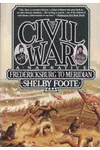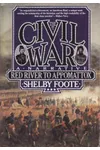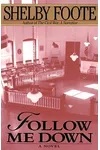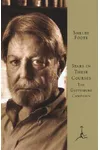Picture a Southern storyteller who spun the chaos of the Civil War into a vivid, page-turning epic—meet Shelby Foote! Born in 1916, this American novelist and historian had a knack for blending meticulous research with spellbinding prose, making history feel like a gripping novel. His masterpiece, The Civil War: A Narrative, redefined how we see America’s past, and his warm, witty voice still captivates readers today.
The Making of Shelby Foote
Shelby Foote was born in Greenville, Mississippi, where the South’s rich storytelling tradition shaped his early years. A voracious reader, he soaked up Faulkner and Proust, but his love for history sparked at the University of North Carolina. After serving in World War II, Foote turned to writing, starting with novels like Shiloh, which hinted at his knack for breathing life into historical moments.
His shift to nonfiction came almost by chance when Random House tapped him to write a short Civil War history. That project ballooned into a 20-year odyssey, cementing his legacy as a historian who could make dusty archives sing.
Shelby Foote’s Unforgettable Stories
Foote’s crowning achievement, The Civil War: A Narrative, spans three volumes and nearly 3,000 pages, weaving a tapestry of battles, leaders, and everyday folks with novelistic flair. Published between 1958 and 1974, it’s less a dry textbook than a living, breathing saga, rich with anecdotes and human drama. Foote’s prose—elegant yet approachable—makes you feel like you’re hearing war stories by a crackling fire.
His novels, like Shiloh (1952), showcase his ability to zoom into a single battle through multiple perspectives, blending grit and heart. Follow Me Down (1950), a Southern gothic tale, reveals his versatility, diving into love, betrayal, and moral ambiguity. Foote’s style, marked by lyrical precision and deep empathy, bridges fiction and history, making every page pulse with authenticity.
Unlike many historians, Foote avoided academic jargon, favoring a conversational tone that invited readers in. His meticulous research—often drawn from primary sources like letters and diaries—gave his work unmatched depth, while his Southern roots infused it with a nuanced view of the Civil War’s complexities.
Why Shelby Foote Matters
Shelby Foote didn’t just write history; he made it accessible and unforgettable. His work inspired a generation of historians and readers, showing that rigorous scholarship could coexist with storytelling magic. His appearance in Ken Burns’ Civil War documentary brought his charm to millions, cementing his status as a cultural icon. Foote’s legacy endures in how we approach historical narratives—vivid, human, and alive.
His ability to humanize both Union and Confederate figures sparked debate but also deepened our understanding of a divided nation. Today, his books remain essential for anyone seeking to grasp the Civil War’s enduring impact on America.
About Shelby Foote
- Born: November 17, 1916, in Greenville, Mississippi
- Key Works: The Civil War: A Narrative, Shiloh, Follow Me Down
- Notable: Featured in Ken Burns’ Civil War documentary
- Died: June 27, 2005
Ready to step into the past? Snag The Civil War: A Narrative and let Shelby Foote guide you through America’s defining conflict with his unforgettable storytelling!












